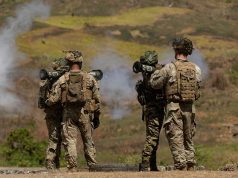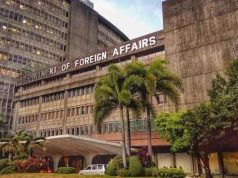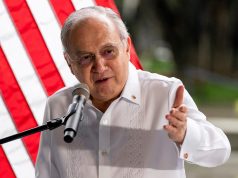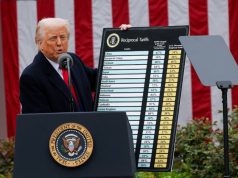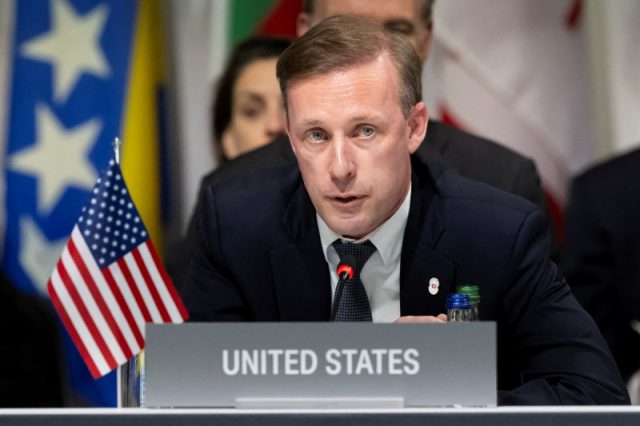
WASHINGTON — White House National Security Adviser Jake Sullivan will travel to China next week for talks with top Chinese diplomat Wang Yi, a visit aimed at keeping U.S.-China tensions in check with the November U.S. election fast approaching.
In Aug. 27-29 talks in Beijing, Sullivan will discuss issues ranging from Taiwan to bilateral military talks and the U.S. fentanyl crisis, as well as China’s support for Russia’s defense industry and tensions in the South China Sea, North Korea, the Middle East and Myanmar, a senior U.S. administration official told reporters.
Sullivan has held regular talks with Wang with an eye to managing competition between the superpowers, and they last met in January in Bangkok. This will be the first visit to China by a U.S. national security adviser since one by Susan Rice under former President Barrack Obama before the 2016 U.S. election.
Sullivan’s trip comes ahead of the Nov. 5 U.S. presidential election that pits Democratic candidate Kamala Harris, the current vice president, against former Republican President Donald Trump, in which U.S. competition with China is a key foreign policy issue.
The U.S. and China have sought to stabilize rocky ties in the past year since they sank to a historic low point after the U.S. downed a suspected Chinese surveillance balloon last year.
Axios reported earlier that Sullivan and Wang are expected to lay the groundwork for a potential meeting between U.S. President Joe Biden and his Chinese counterpart Xi Jinping later this year, to follow up on their California summit last November.
Asked about such a meeting, the senior administration official said both the U.S. and China saw value in leader-level engagement.
“I would expect that to continue, and we look for opportunities to continue that through the end of the year,” the official said.
White House national security spokesperson John Kirby said he had no specific information on this but called U.S.-China “the most important bilateral relationship in the world right now.”
“We’re going to keep trying to manage this relationship in a way that’s consistent with our national security priorities,” he told a regular briefing.
Shortly after the trip announcement, Washington said it was imposing sanctions on more than 400 entities and individuals for supporting Russia’s war effort in Ukraine, including Chinese companies U.S. officials believe are helping Moscow skirt Western sanctions and build up its military.
Touch points
The senior official said Sullivan’s visit should not be associated too closely with the election. “That’s not the point. We’ve tried to do these Wang Yi-Jake Sullivan touch points about once a quarter.”
“(The election) is always in the background in any engagement we have with foreign officials concerned about what comes next or what the transition will be like, but this meeting will be focused on the topics and the issues that we are dealing with,” the official said.
“There’s a lot we can get done before the end of the year in terms of just managing the relationship. I think that will be the focus.”
The official added that Sullivan would push for a resumption of theater-level military-to-military talks with China, and was also likely to raise U.S. concerns about China’s “increased military, diplomatic and economic pressure against Taiwan.”
He would be looking too to hear China’s assessment of the situation in the Middle East, where the two sides have different approaches but some shared concerns about instability.
“It really is about clearing up misperceptions and avoiding this competition from veering into conflict more than anything else,” the official said.
“The fight against illicit precursor chemicals and fentanyl is … a constantly evolving trade, and so there are always things we need to push forward,” the official added.
Critics in Washington argue the Biden administration has not put enough pressure on Beijing over fentanyl-related substances, which are the leading cause of U.S. drug overdoses.
China says it is cracking down on fentanyl and precursor chemicals and that the U.S. crisis is a problem of demand, not supply.
U.S. Secretary of State Antony Blinken met Wang and Xi in Beijing in April. That visit brought little progress on contentious issues, although there was some effort to ease the mood by emphasizing educational and other cultural exchanges.
Blinken reiterated Washington’s concerns over Beijing’s actions toward Taiwan and its support for Russia’s war in Ukraine when he met Wang in Laos in July.
—Additional reporting by Michael Martina in Washington and Gnaneshwar Rajan in Bengaluru; Editing by Christina Fincher, David Holmes, Marguerita Choy, Jonathan Oatis and Daniel Wallis





